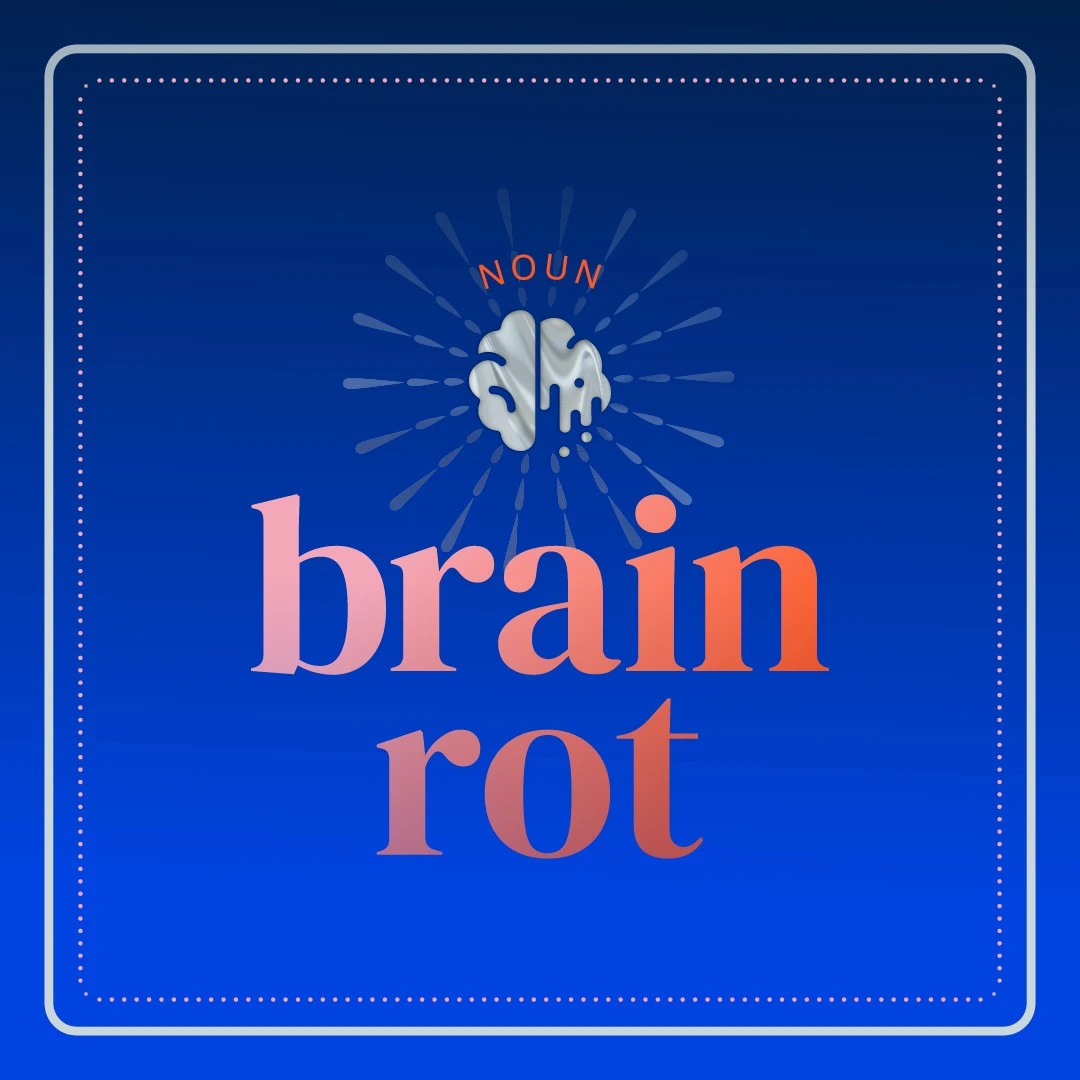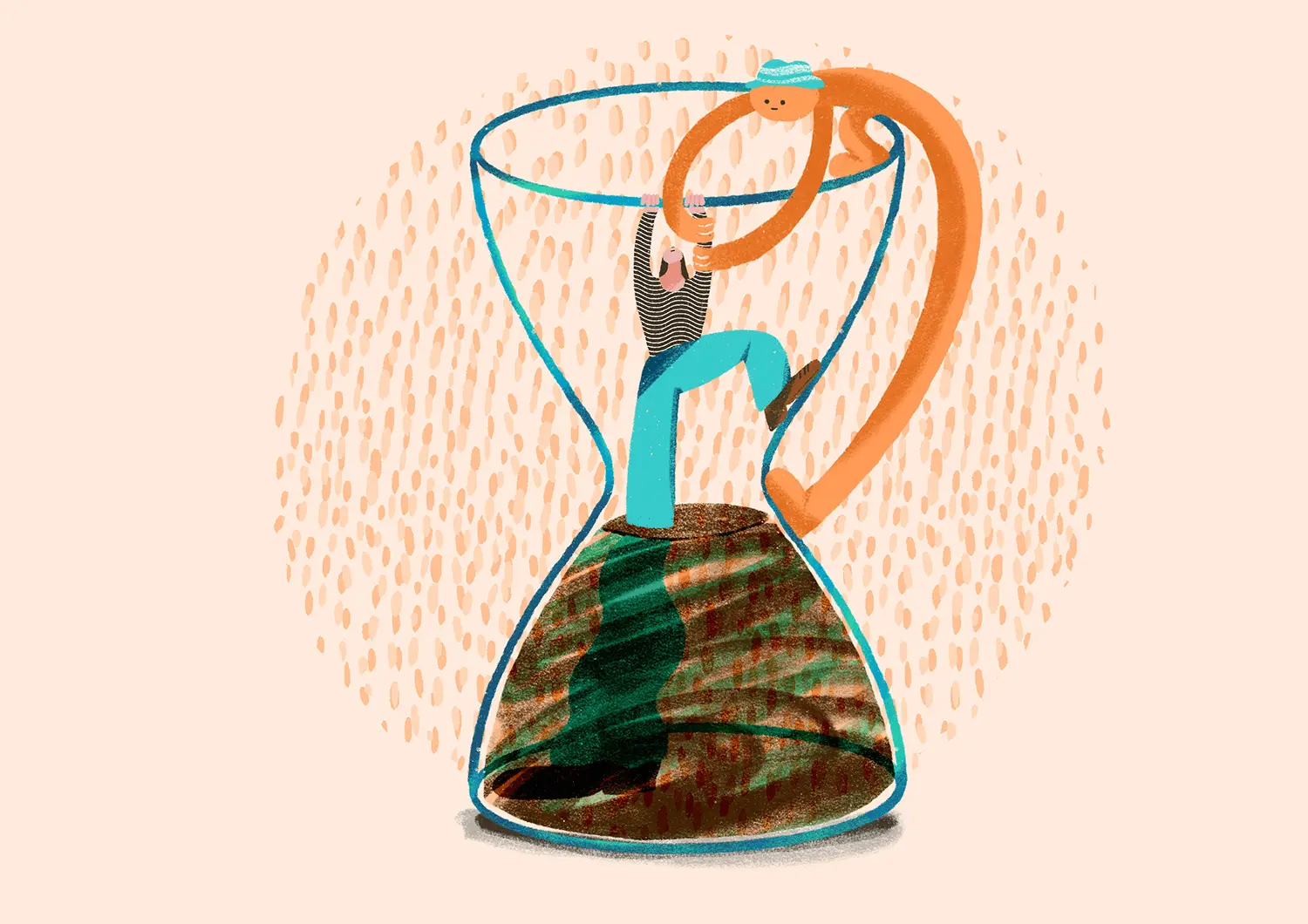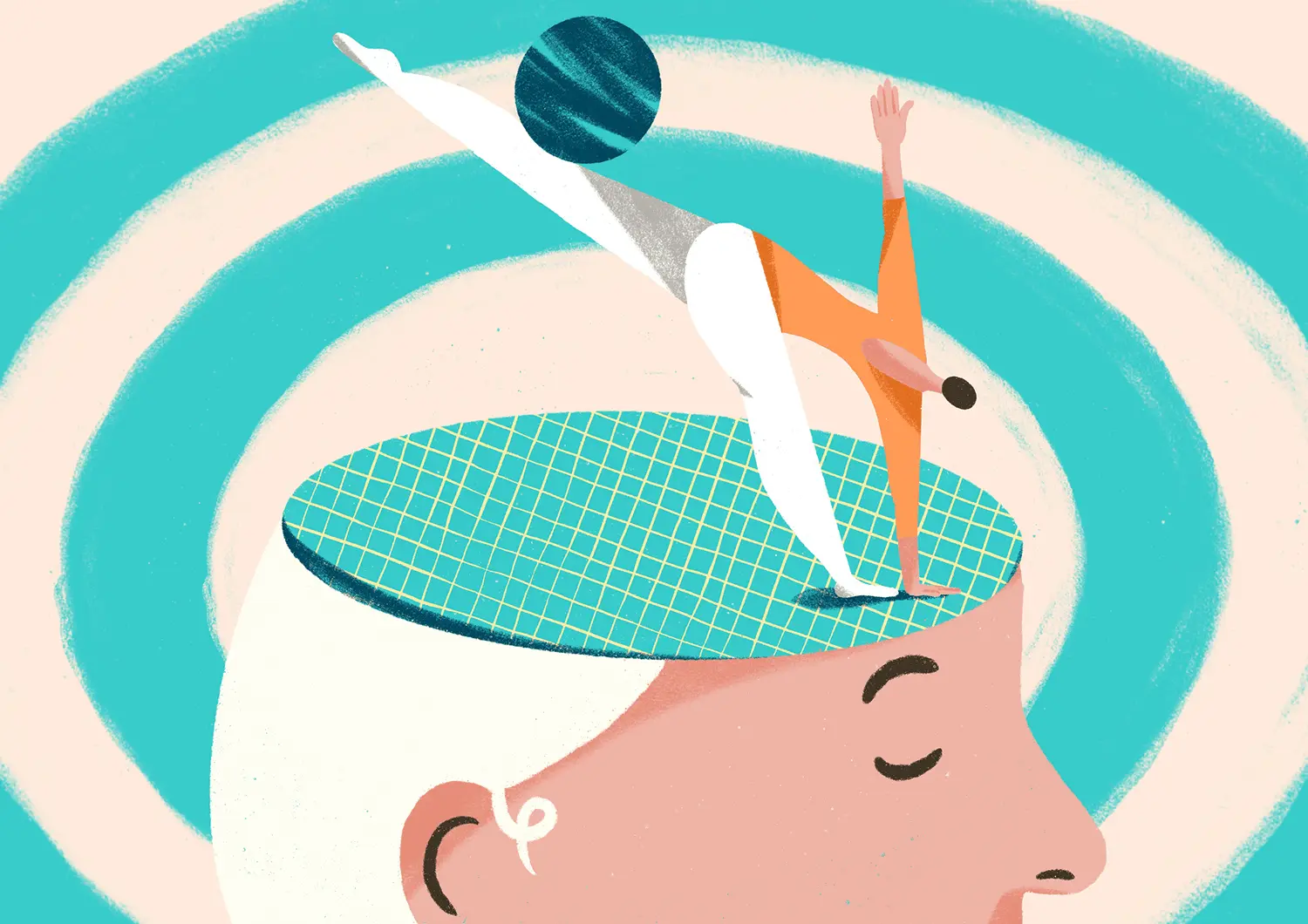Sitting at my desk, I look at a document that I've barely read one-third of, suppressing the impulse to open Instagram to check reels and browse forums for trending topics, while simultaneously wondering if my friends have replied to my messages... Yet, I know that the memes on Instagram are generally repetitive, and the topics in the forums aren't particularly fresh. I’ve simply gotten used to checking my phone for no particular reason, as it doesn’t require much effort. At the same time, when I see some slightly more profound articles, I naturally skip over them without delving deeper. Initially, I thought it was no big deal, but I gradually realized that a brain that doesn’t engage in effort is like overripe fruit; it slowly rots, losing its refreshing and agile essence, resembling a brain in decay - resulting in "Brain Rot".

(Source: Facebook of University of Oxford)
"Brain Rot" is not uncommon, as evidenced by its recent recognition as the "Word of the Year 2024" by Oxford University Press. This term may sound unfamiliar, but it actually dates back to 1854. The writer Henry David Thoreau used "Brain Rot" in his book Walden to criticize society's tendency to favor simplified ideas over deep and complex thoughts, leading to a decline in people's thinking and intelligence.
Nowadays, "Brain Rot" describes our prolonged time spent online, focusing our mental energy on browsing social media, watching videos, and consuming trivial, low-effort information, which can lead to a decline in psychological and cognitive abilities. Every day, when we scroll through our phones and encounter a flood of information, we tend to absorb it passively, often opting for simple and unchallenging content. This leads us to gradually overlook the depth and quality of what we consume. While it may feel like we're taking in a lot of information, in reality, we're missing out on opportunities for deeper thought and imagination.
When the mind operates like a machine on minimal function, without thinking as its lubricant, our flexibility and ability to analyze things deeply become increasingly dull. However, "Brain Rot" is actually prevalent in our daily lives. For instance, there's "doomscrolling," which refers to endlessly reading distressing news and information, and "zombie scrolling," the aimless habit of scrolling through our phones. In recent years, the popularity of platforms like TikTok, Reels, Threads, and various simplified news summaries has exacerbated this situation.
Is Being Constantly Online Diminishing Our Focus?
Numerous studies have found that the internet shortens our attention spans, weakens our memory, and even impacts our cognitive performance. Dr. Gloria Mark, a professor at the University of California, Irvine, discovered that our focus is sharply declining: in 2004, her research team found that participants had an average attention span of two and a half minutes (150 seconds) on any screen; by 2012, this average had dropped to 75 seconds; and in recent years, it's fallen to just 47 seconds.
In addition to the declining focus, the constant effort to keep up with various information on social media can lead to overwhelming mental burdens, which may transform into anxiety, stress, and other adverse emotions, ultimately impacting our mental health.

Tips to Keep Your Mind Fresh
To prevent "brain rot", the best approach is to "keep it fresh" - by consuming a varied and balanced mix of enriching information to maintain its health and vitality:
- Review the content you subscribe to, pay attention to the information you frequently consume, and ensure diversity among your subscribed media.
- Create your own "Content Pyramid" by selecting intellectually enriching and diverse content. For example, the base of the pyramid could include in-depth feature/ articles and current affairs; the middle layer might feature engaging and eye-opening content like documentaries; and the top layer could consist of trending topics and memes. Remind yourself to absorb more from the base layer to avoid aimless scrolling through top-layer information.
- Limit your screen time by making good use of features like Screen Time (see the article "The Algorithm's Time Trap" for reference).
- When engaging in deep work, turn off message notifications, close unrelated tabs, and enable your phone's "Focus Mode" to prevent distractions and keep your mind on task.
- Practice digital detox by scheduling tech-free hours, such as the first hour after waking up or the last hour before bed. Choose activities other than surfing the web, like exercising, stretching, practicing mindfulness, reading, writing, engaging in art, learning a new language, or gardening.
- Set aside time for deep thinking and reading, such as listening to podcasts that explore various topics, culture, history, current events, and interpersonal relationships. Engage with interactive and discussion-oriented platforms like Reddit and Quora.
- Embrace offline moments to savor the richness of real life. Host a board game night with friends or family, venture to an island, or wander along the shore to discover hidden gems in local shops. Engage in heartfelt conversations face-to-face, stepping away from the confines of screens. Not only see the world through the eyes of others, but also share your own unique vision. Cultivate the art of questioning, thinking deeply, and feeling fully, allowing genuine connections to blossom.
At our essence, we are the architects of our own minds. To guard against the silent erosion of thought, let us first ponder the life we yearn to live. Reflect on the past day, month, or year - where has the fleeting time been spent? Have we dared to embrace our ideal selves? Time flows like a river, unceasing, day and night. Yet, regardless of what has been, we can choose to begin anew in this very moment. With small, deliberate steps, we can shift our mindset and cultivate the life we truly wish to embrace.
References:
Moshel, M. L., Warburton, W. A., Batchelor, J., Bennett, J. M., & Ko, K. Y. (2024). Neuropsychological Deficits in Disordered Screen Use Behaviours: A Systematic Review and Meta-analysis. Neuropsychology review, 34(3), 791–822. https://doi.org/10.1007/s11065-023-09612-4
Tandon, A., Dhir, A., Almugren, I., AlNemer, G. N., & Mäntymäki, M. (2021). Fear of missing out (FoMO) among social media users: A systematic literature review, synthesis and framework for future research. Internet Research, 31(3), 782-821. https://doi.org/10.1108/INTR-11-2019-0455
Przybylski, A. K., Murayama, K., DeHaan, C. R., & Gladwell, V. (2013). Motivational, emotional, and behavioral correlates of fear of missing out. Computers in Human Behavior, 29(4), 1841-1848. https://doi.org/10.1016/j.chb.2013.02.014
Elhai, J. D., Levine, J. C., Dvorak, R. D., & Hall, B. J. (2016). Fear of missing out, need for touch, anxiety and depression are related to problematic smartphone use. Computers in Human Behavior, 63, 509-516. https://doi.org/10.1016/j.chb.2016.05.080
Oxford University Press. (2024). ‘Brain rot’ named Oxford Word of the Year 2024. Oxford University Press. Retrieved at https://corp.oup.com/news/brain-rot-named-oxford-word-of-the-year-2024/
Mark Travers. (2024). A Psychologist Suggests 4 Ways To Combat Digital ‘Brain Rot’. Forbes. Retrieved at https://www.forbes.com/sites/traversmark/2024/12/06/a-psychologist-suggests-4-ways-to-combat-digital-brain-rot/




